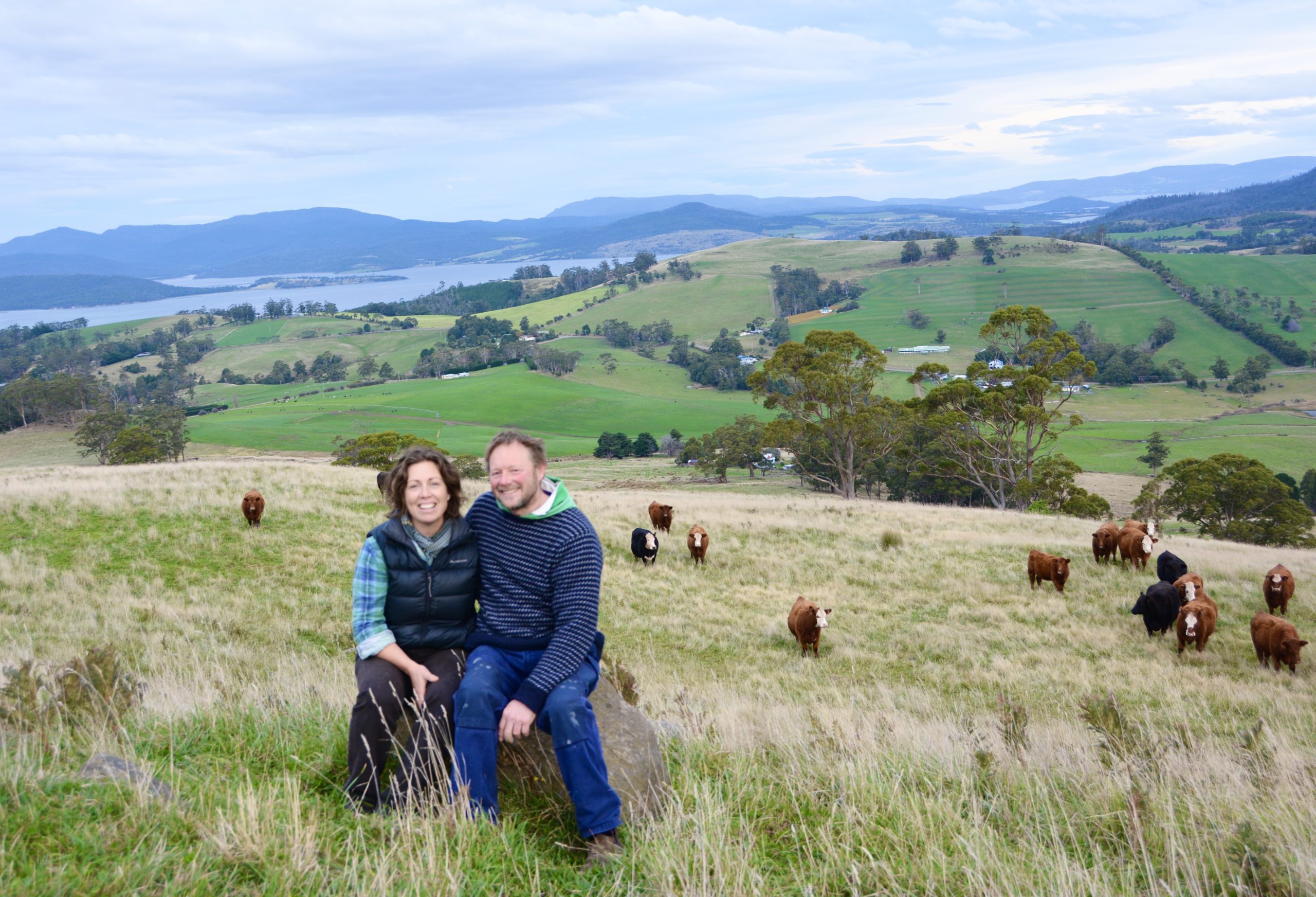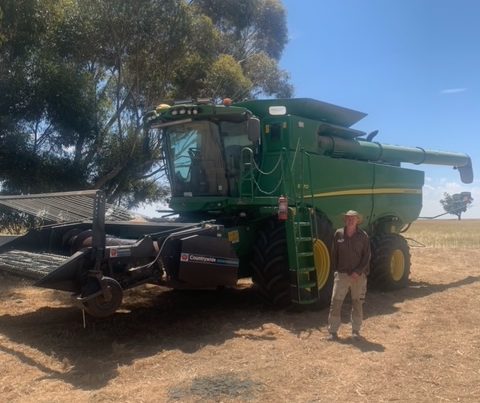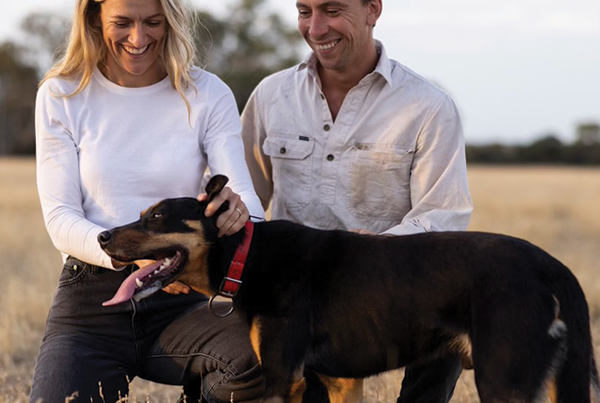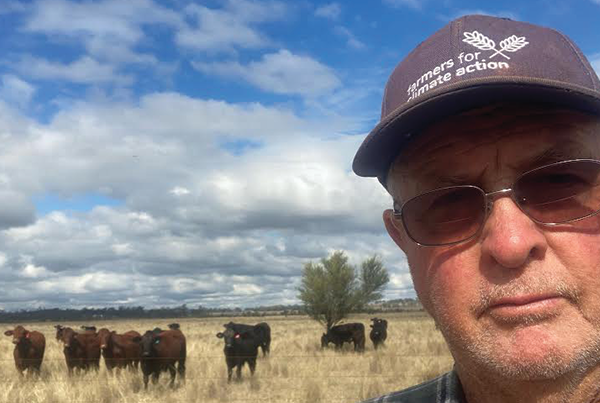At a glance
WHO: Iain and Kate Field, Leap Farm (and Tongola Cheese)
WHAT: We are a mixed enterprise, on around 120 ha on the slopes of the Ragged Tier overlooking Marion Bay in south eastern Tasmania. We run cattle and goats for meat, and have a goat dairy and value-add by making cheese on-farm. All our meat and dairy produce are sold directly to the public and food service customers.
WHERE: Copping/Bream Creek, Lower east coast of Tasmania
Can you tell us about your property?
We moved back to Tassie about 9 years ago and bought our farmland. Our farm used to be two smaller dairy farms until about 35 years ago, when it was then used as an agisting property for larger beef farming operation. The previous owners also started to run some goats as weed managers. With diverse pastures, tree stands and low input system established it was ideal for what we had in mind.
We use robust ecological principles along with some conventional farming practices, which to grow and maintain our pastures, with over 34 species of plants accessible as forage. We use low-medium stocking rates, with low inputs and no till practices. We try to maintain 100% cover with mixed native and perennial grasses and other forage plants. The average long-term rainfall in the area is around 700 mm per year, though water is becoming more of a variable resource with climate variability.
What first got you thinking about climate change?
I (Iain) think I first became aware of climate change as a student 30 years ago, but it was really brought home over a research career in ecology. I was lucky enough to visit some far away extreme places, the subantarctic and Antarctica, Greenland and the tropics in the Pacific. the Extremes climates are where we first see stronger indications of change and having lived in a number of those places and seeing the unprecedented changes that are happening it is hard to deny that climate change is not real. It may have been slow and subtle to start with but now the evidence is clear and robust. Whether that is the rapid retreat of glaciers, warming and freshening of the Southern Ocean or the halving of some populations of marine predators everywhere you look the evidence is there. And locally, in our district, where weather records go back to 1918, we can see greater variation now than before and a long-term decline in rainfall.
How has climate change impacted on your farm business?
As we were not tied to any farming style or practices, we have considered the changing climate in all of our decision making; from where to buy a farm, our day to day operations and long term planning, all aimed at reducing our carbon footprint in the manufacture of quality produce and giving our livestock the best possible life.
What are some of the climate-smart strategies you’ve been employing and how successful have they been?
We’ve been on our farm for almost a decade, we know that’s not really very long, and since starting we have committed to a number of interventions: increasing pasture/vegetation diversity and cover, increasing soil carbon and health, fencing off and maintaining tree stands and planting replacements, increasing our water storage, and managing our grazing and animal systems to turn off stock sooner and in better condition. All of these measures have benefited the farm in some way. When we bought the farm, the previous owner had used it as a beef cattle agisting property for the last 25 years. Very little had been done to it making it ideal for our ecological approach to goat dairying and beef farming, with good soil and mixed pastures. To date, we have increased pasture diversity, increased our organic soil carbon by around 1%, turning off our goat kids up to 4 months earlier at a larger size an in better condition for a premium return, and reduced our beef herd. All of this has gotten us close to a low carbon footprint if not carbon positive across the whole farming operation. We are also in the process of starting to trial seaweed feed additives for reducing methane emissions from our goats.
Do you use renewable energy on your farm? What are the benefits?
We have solar PV and solar hot water on farm, used for dairying, diary processing and general power. For the bulk of the year, we create more power on farm than we use, though the seasonal nature of our enterprise and Tasmanian climate leaves us with a shortfall. We are working to bridge the gap with some additional PV panels and a battery system to be installed soon.
If you could send a message about climate change to the Federal Government (in 50 words or less) what would it be?
Act Now! Emission reductions and carbon sequestration can provide farmers with the opportunities to work for all Australians. We need to support all farmers to improve and maintain healthy agricultural landscapes enabling ecosystem services, food and fibre production, and strong vibrant rural communities.







